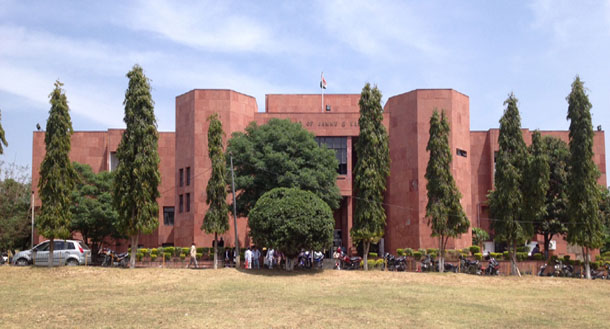The Court observed that the Ministry of Home Affairs has explicitly clarified that an individual belonging to the SC/ST category retains their community status even after marrying outside their community.
Jammu & Kashmir and Ladakh High Court Directs Authorities to Reconsider Denial of ST Certificate to Woman from Padri Tribe
The High Court of Jammu & Kashmir and Ladakh recently directed the concerned authorities to review their earlier decision denying a Scheduled Tribe (ST) certificate to a woman from the Padri tribe due to her marriage to a non-Padri individual in the case of Shivaeta Rani v. Union of India & Ors.
Justice Wasim Sadiq Nargal issued the order after observing that the Ministry of Home Affairs has already clarified that individuals belonging to the Scheduled Caste (SC) or Scheduled Tribe (ST) communities retain their community status even after marrying outside their respective communities.
The counsel representing the government authority that had initially denied the certificate informed the Court that, in light of this clarification, it had no objection to granting relief to the petitioner. Senior Additional Advocate General (AAG) Monika Kohli suggested that the matter could be resolved by allowing the petitioner to submit a fresh application for the ST certificate.
However, the petitioner argued that the matter was time-sensitive as she needed the ST certificate to apply for the upcoming civil services examination, with the application deadline set for February 11.
Considering the urgency and the potential impact on the petitioner’s career, the Court directed the concerned authority to reconsider its earlier decision without requiring the petitioner to file a new application. The authority was instructed to communicate its decision by February 11, ensuring the petitioner could meet the exam deadline.
“Keeping in view the urgency expressed and the career of the petitioner being involved, this Court deems it proper to dispose of the instant petition by directing respondent No. 5 to take a decision in the instant matter for issuance of an ST category certificate in favour of the petitioner, being a member of the Padri Tribe, on or before 11.02.2025,” the Court ordered.
Jammu & Kashmir High Court Directs Authorities to Reconsider Denial of ST Certificate to Padri Tribe Woman
The Jammu & Kashmir and Ladakh High Court was hearing a petition filed by Shivaeta Rani, a woman from the Padri tribe, who was denied a Scheduled Tribe (ST) certificate following her marriage to a non-Padri individual.
Rani sought the ST certificate to avail the benefits reserved for ST candidates in the UPSC civil services examination. However, the concerned authorities rejected her application solely on the ground of her inter-community marriage.
Challenging this decision, Rani filed an appeal before the Additional Deputy Commissioner, Kishtwar. The appellate authority dismissed her appeal, stating that the matter involved technical issues that could only be resolved under the Reservation Act or through a clarification from the Law Department. Nevertheless, the authority granted Rani the liberty to approach the competent authority again.
Subsequently, Rani moved the High Court. Her counsel highlighted that a recent clarification had been issued to all Deputy Commissioners in Jammu & Kashmir and the Revenue Department, explicitly stating that a woman cannot be denied her SC/ST/OBC status due to marriage with a person from a different community. This clarification emphasized that caste is determined by birth, not by marriage, based on guiding principles issued by the Ministry of Home Affairs.
Taking this into account, the High Court directed the concerned authority to reconsider Rani’s case for the issuance of an ST certificate.
“It is made clear that the decision shall be taken strictly in conformity with the clarification issued by the Social Welfare Department, pursuant to the opinion of the Ministry of Home Affairs and the Law Department,” the Court ordered.



